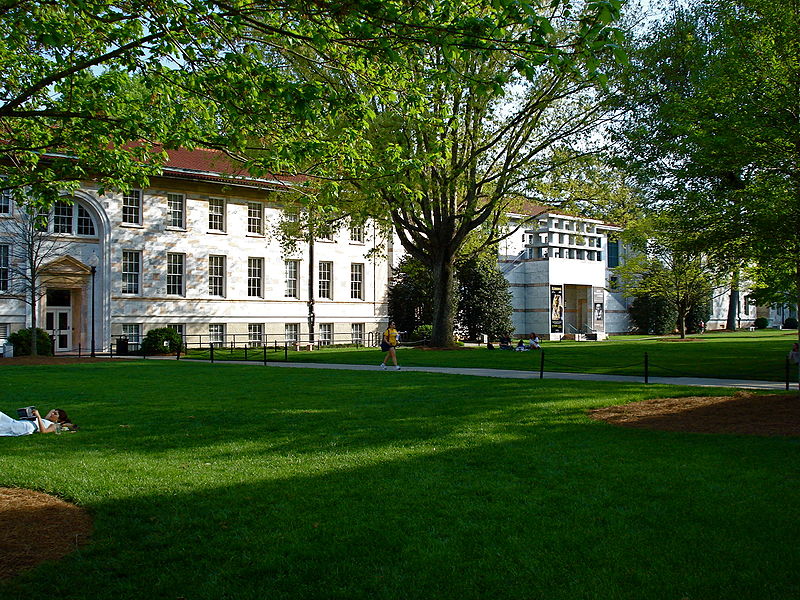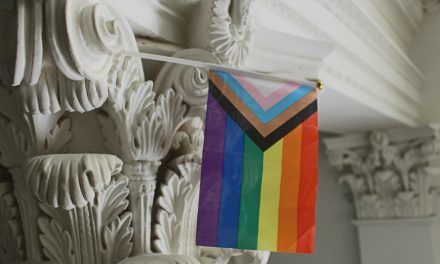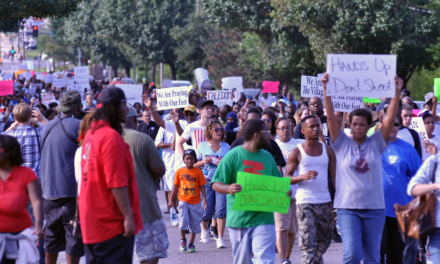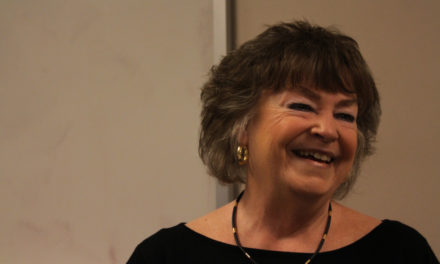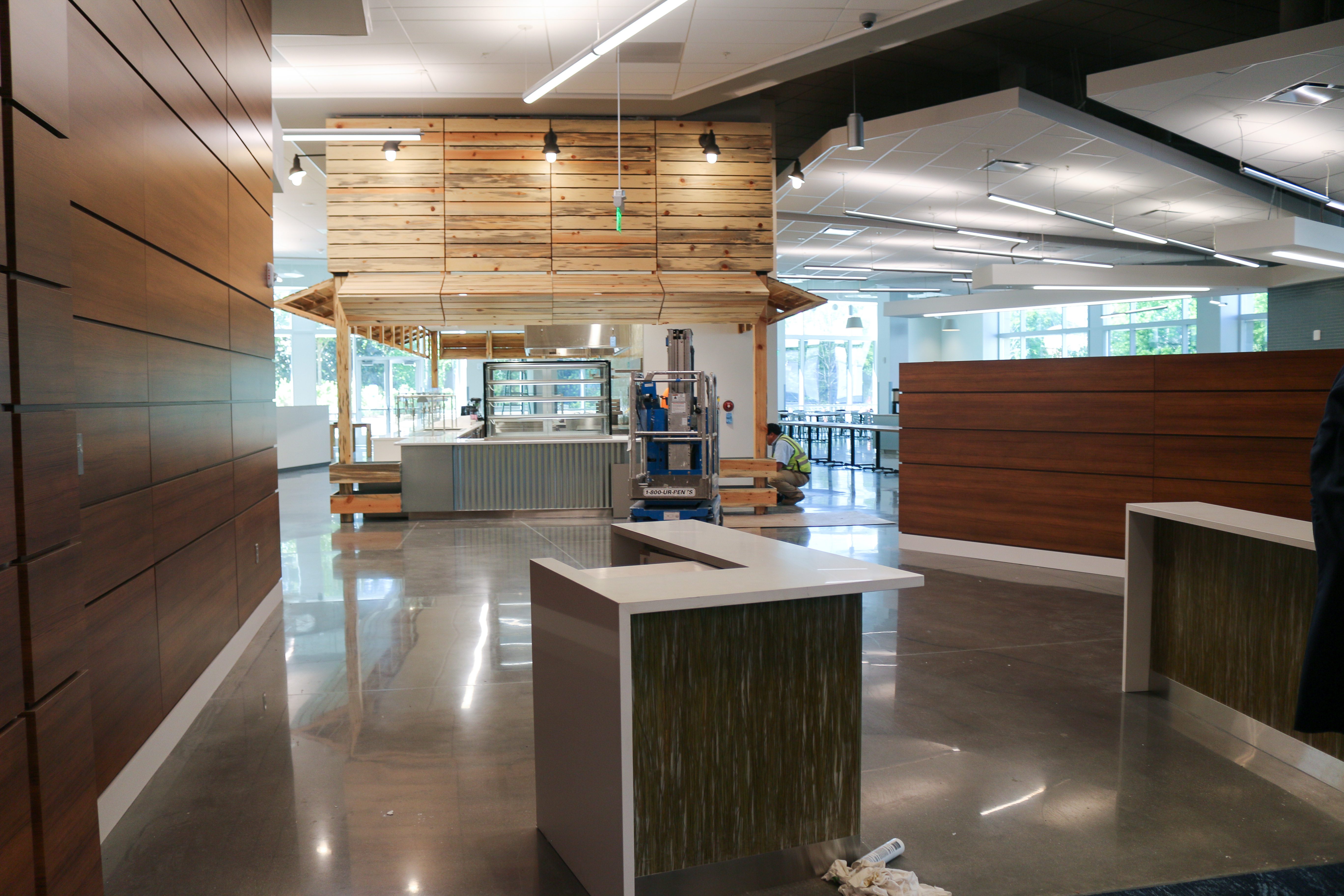Rosemarie Garland-Thomson is known around campus as a spirited and particularly friendly professor in the English and Women’s, Gender and Sexuality Studies departments. She is also a published author and a student in Emory’s Master of Arts in Bioethics program.
What many people may not know about Garland-Thomson is that she helped usher in a new academic field, now called Disability Studies. She and Benjamin Reiss serve as the co-directors of the Disability Studies Initiative here at Emory. In the words of Lindsey Grubbs, a Ph.D student in the English program and one of Garland-Thomson’s students, Garland-Thomson is a “big deal.”
In August 2013, Garland-Thomson gave the Emory College Faculty Convocation Address.
In her address, she encouraged freshmen to “recognize and appreciate how the ways that we have built this shared world determine who is included and who is excluded from our communities.”
Garland-Thomson’s speech focused on the success of past disability-related policies and highlighted the importance of continuing and enhancing the legacy of inclusion in the United States and throughout the Emory community.
In her address, Garland-Thomson noted that, because of legislation, enacted in the mid to late 1900s, “It’s quite possible that people like you, born in the mid-1990s, may not real- ize the ease with which we all now use a community such as Emory University.”
The address coincided with the creation of the Disability Studies Initiative at Emory in early fall 2013.
Since then, Garland-Thomson has continued her work to build a new type of infrastructure to support disability services: an intellectual network through the creation of the Disability Studies Initiative at Emory.
Garland-Thomson majored in English at the University of Nevada, eventually earning her Ph.D in the subject at Brandeis University in Boston.
After teaching at Howard University, Garland-Thomson came to Emory in 2002 to work in what is now the Women’s, Gender and Sexuality Studies Department.
Garland-Thomson was born with one arm shorter than the other, and she remembers when schools were segregated on the basis of disability.
According to Garland-Thomson, before the disability civil rights movement, people with disabilities had to go to separate schools because mainstream schools were not accessible.
“Disabled people couldn’t get in, but they also weren’t allowed,” Garland-Thomson said.
She recalls that it was “remarkable that [she] got to go to a regular or mainstream school.”
Later in life, Garland-Thomson found that feminism and the study of women and women’s culture gave her the opportunity to “think through what it meant to be a disabled person in the United States and in the world.”
She was able to take her work on women’s contributions to and positions in culture and apply it to thinking about people with disabilities and the challenges they face today.
Garland-Thomson began working with colleagues to develop “what [she and her colleagues] imagined as an interdisciplinary new field that [they] were calling, or that was called, Disabilities Studies.” She has devoted substantial efforts in her career to develop this field, which she notes is quite robust here at Emory.
According to Reiss, Disability Studies didn’t really exist as a scholarly enterprise in the humanities until the mid-90s and Garland-Thomson “was one of the two or three scholars that was really putting out an agenda that people could see have broad application to [the] humanities field.”
Reiss also said that Garland-Thomson’s presence here was a huge draw for him to come to Emory. Calling her one of the most influential people in his career, he said it was her work that initially got him interested in the field of Disability Studies.
Garland-Thomson’s most recent book titled “Staring: How We Look” was published in 2009, and she is currently working on “Habitable Worlds: Eugenic Spaces and Democratic Spaces.”
Now, due to much of Garland- Thomson’s work, Emory has its own Disability Studies Initiative. Garland-Thomson said that this initiative is distinct from a degree program.
“What it does instead of earning students degrees in a field called Disability Studies, it actually provides an understanding of disability and how disability works in culture and society and relationships,” she said.
Reiss and Grubbs both noted the sense of community Garland-Thomson has brought to the field. Mentioning that work done in the humanities can often be very solitary, Reiss said that this sense of community is the most inspiring thing about working and getting to know Garland-Thomson.
He said that she “collects” people and helps them to see how what they are working on is related to Disability Studies.
“She had that effect on me, and I’ve seen it on dozens of people,” he said. “And it really transforms the way you look at your work when you see that this project I’m working on is something that is much larger than me and can put me in connection with a whole network of people way outside of my field of training. It’s very exciting and very moving.”
Disability Studies is unique in that it is truly an interdisciplinary field. Teachers, researchers and graduate students from all sorts of different academic backgrounds are involved in the Disability Studies Initiative.
Another characteristic that makes Disability Studies unique is that it applies, almost universally.
Garland-Thomson noted that “disability is a particularly porous category in the sense that anyone can move into this category, literally, in a minute and everyone, if they live long enough, will move into this category.”
In short, disability can be simply thought of as another stage of our lives.
According to Garland-Thomson, since we may all be disabled at some point in our lives, the field of Disability Studies can help both individually prepare us and prepare society to receive us as we transition into another category.
As an example, Garland-Thompson mentioned the prospect of getting the education system to invest in making sign-language part of the standard school curriculum. That way, when people become late-life deafened, they would imagine themselves simply as transitioning into another form of communication, instead of being hindered by their inability to hear.
Families could bring their grandparents into any setting, even loud ones, and still be able to incorporate them into the conversation.
Garland-Thomson said that this system would “be a way of signaling to the world that disability is not an otherness that we will never enter into but rather disability is actually, us.”
– By Annie McGrew, Contributing Writer
The Emory Wheel was founded in 1919 and is currently the only independent, student-run newspaper of Emory University. The Wheel publishes weekly on Wednesdays during the academic year, except during University holidays and scheduled publication intermissions.
The Wheel is financially and editorially independent from the University. All of its content is generated by the Wheel’s more than 100 student staff members and contributing writers, and its printing costs are covered by profits from self-generated advertising sales.

